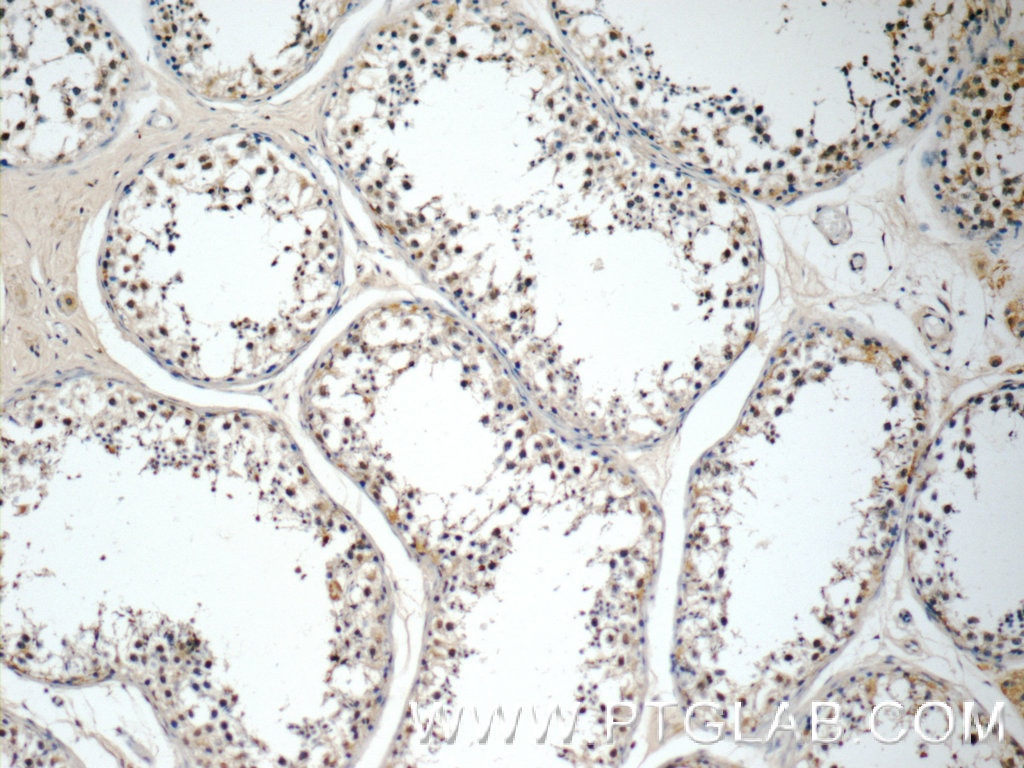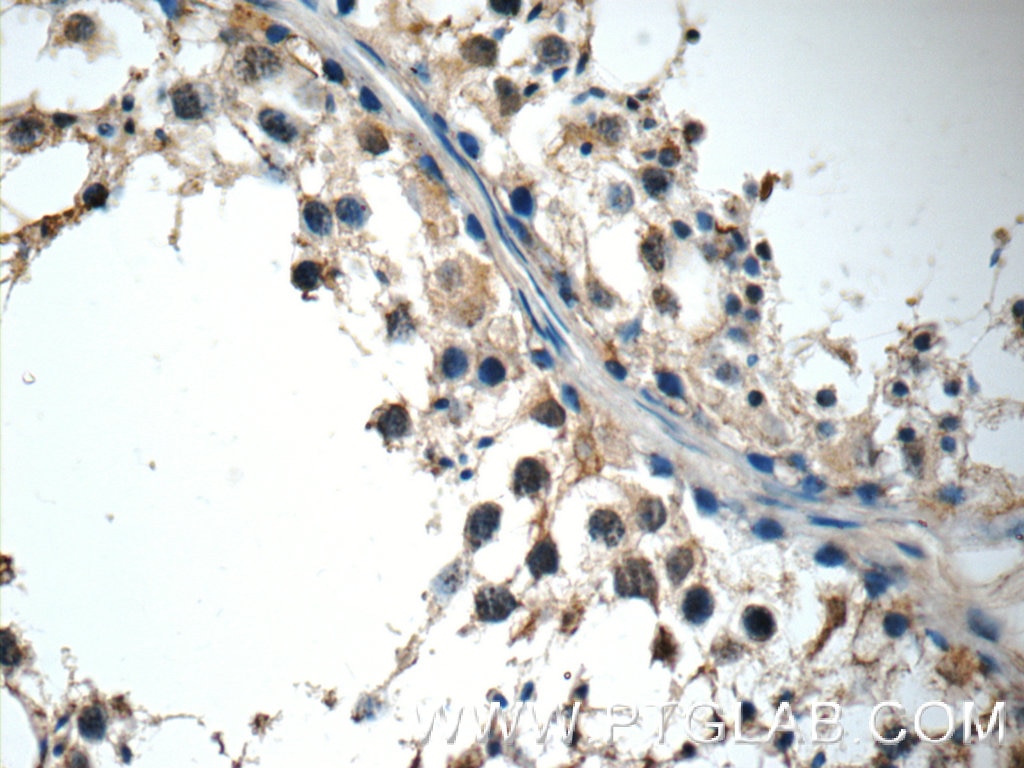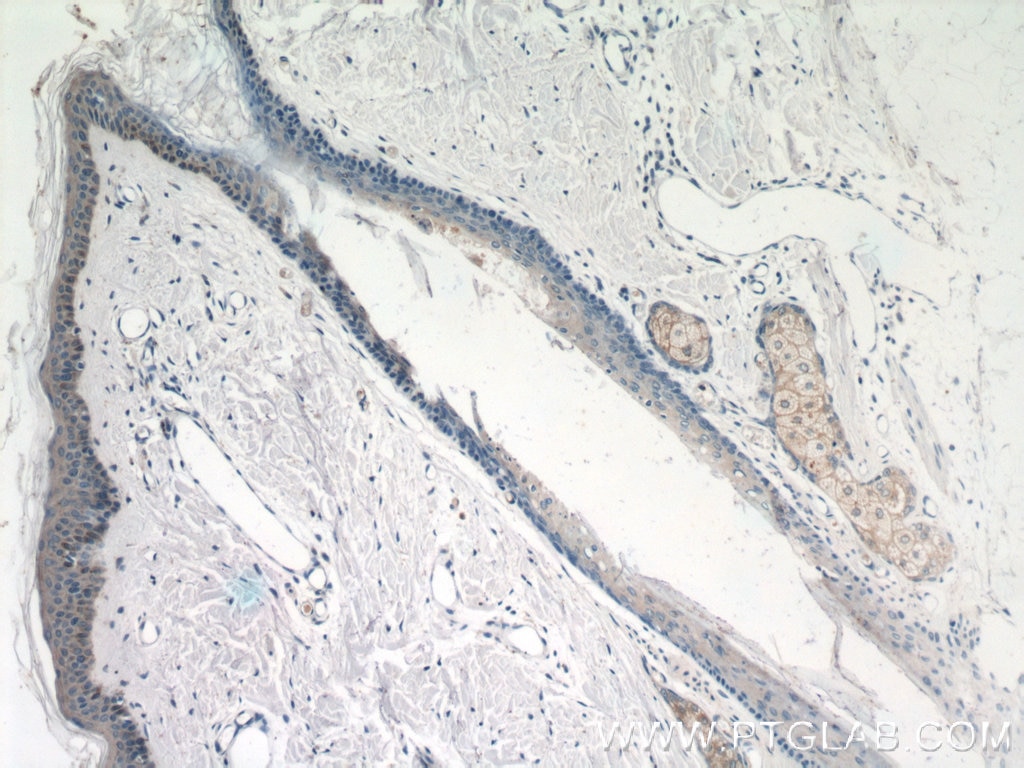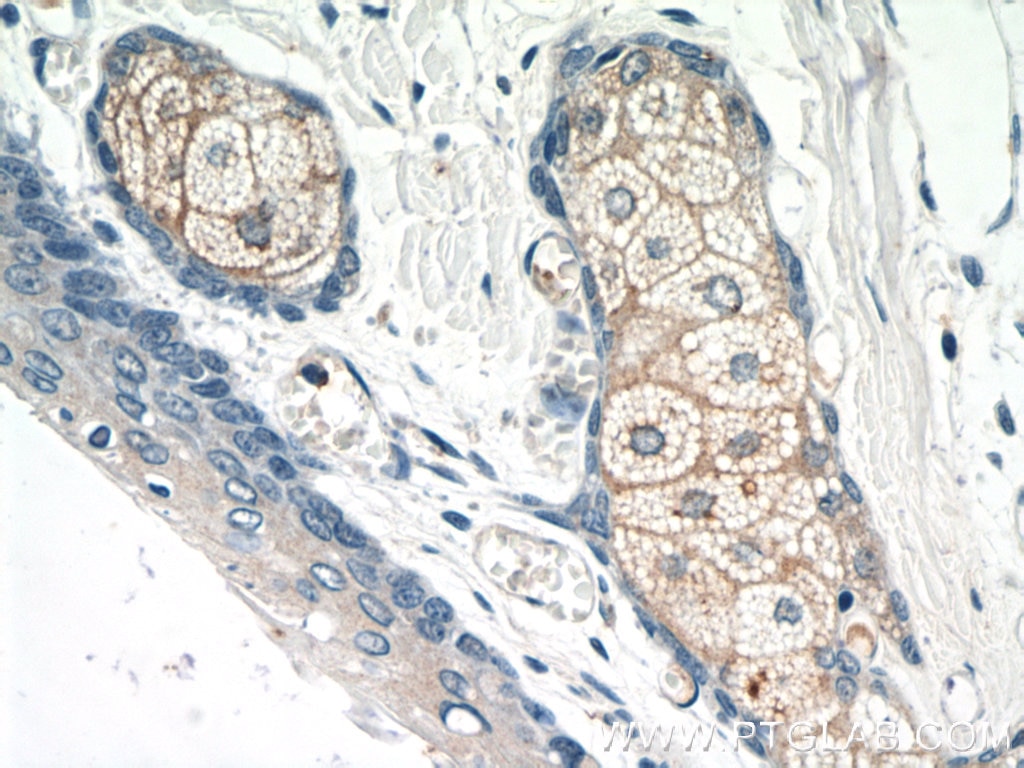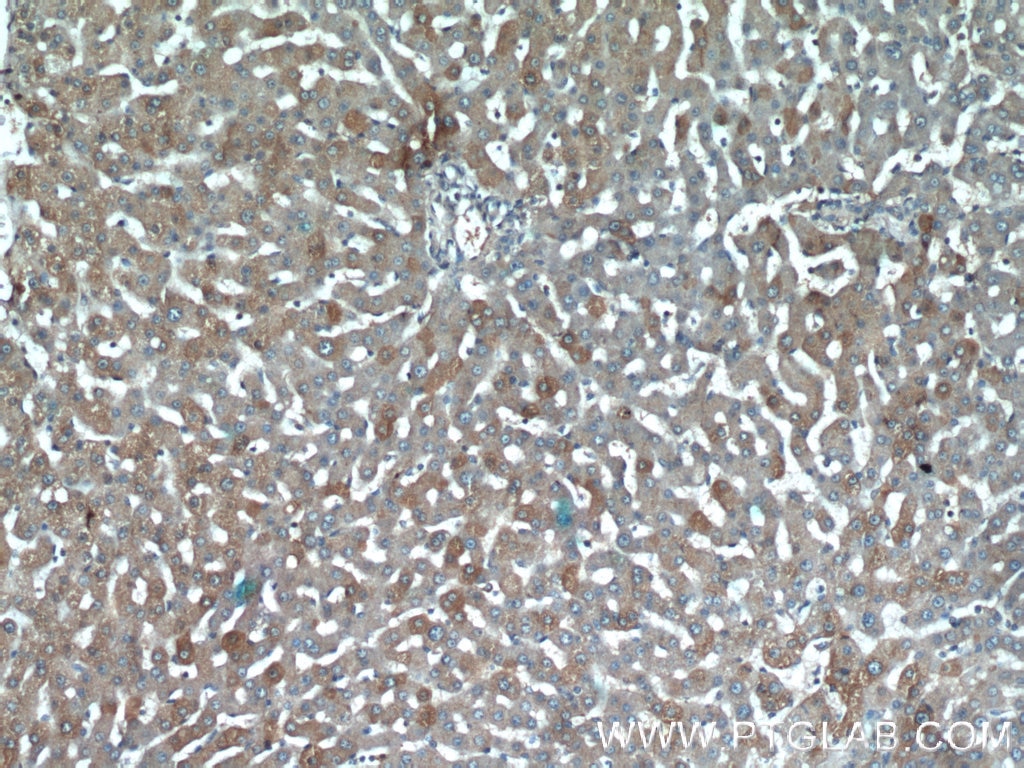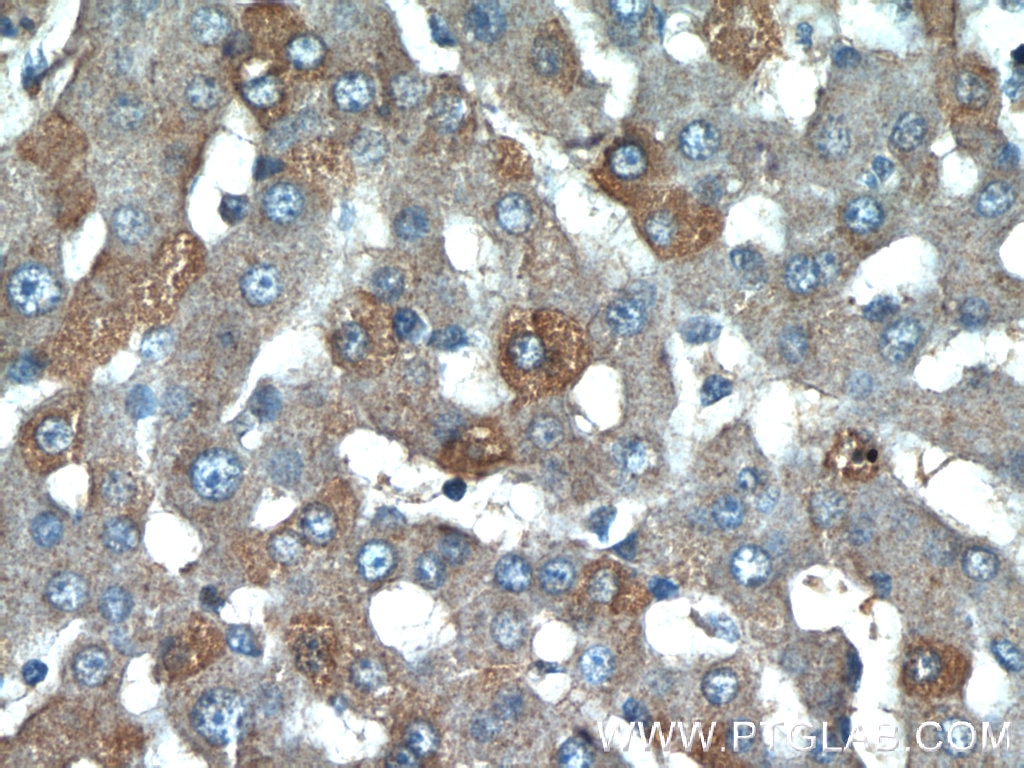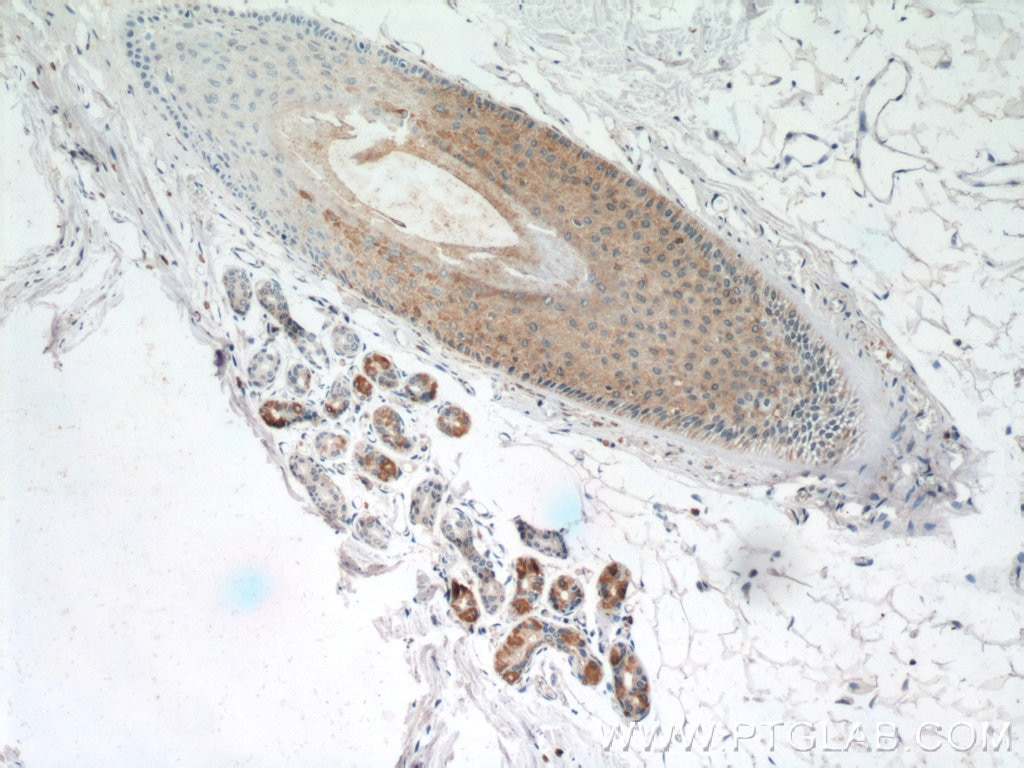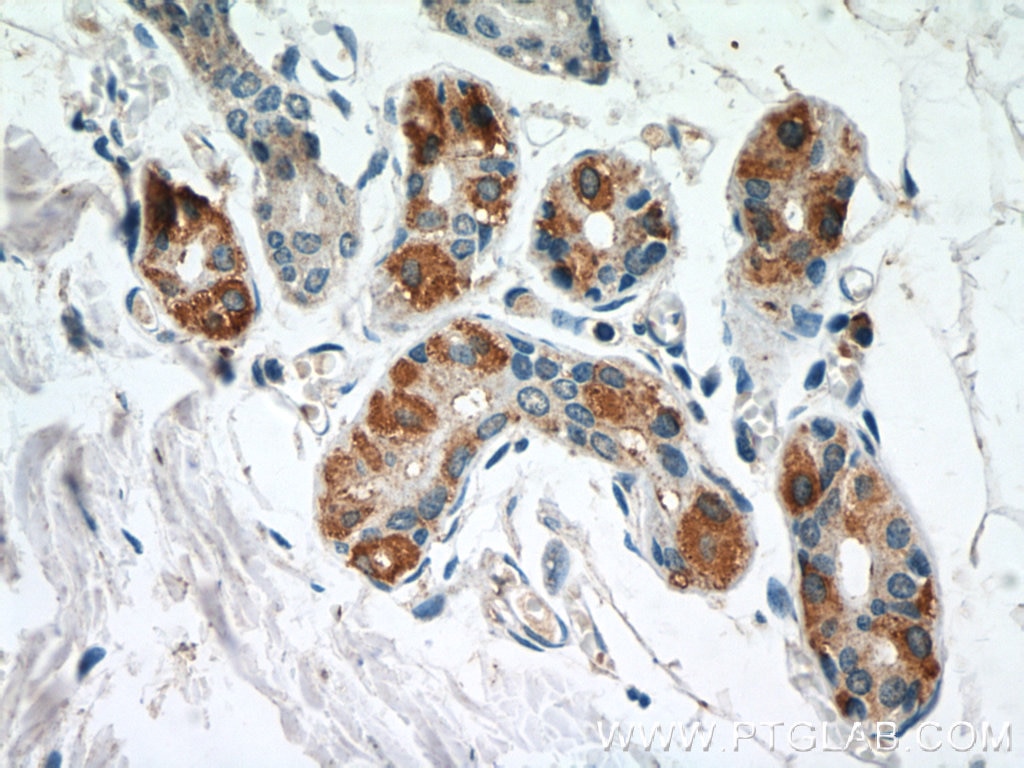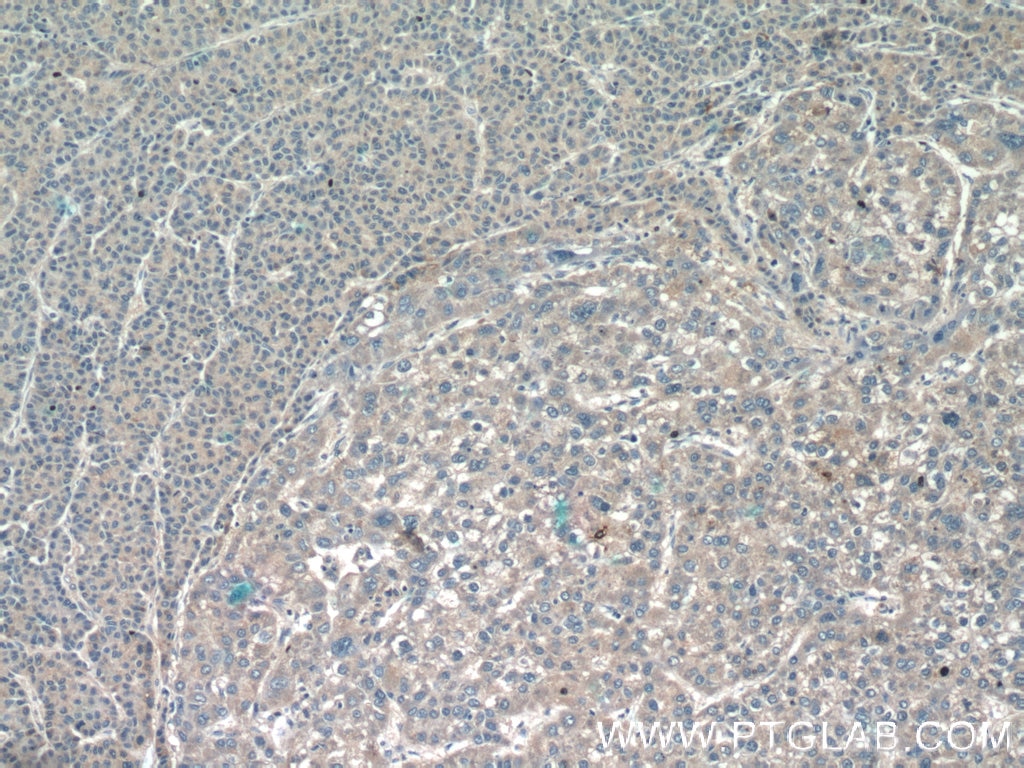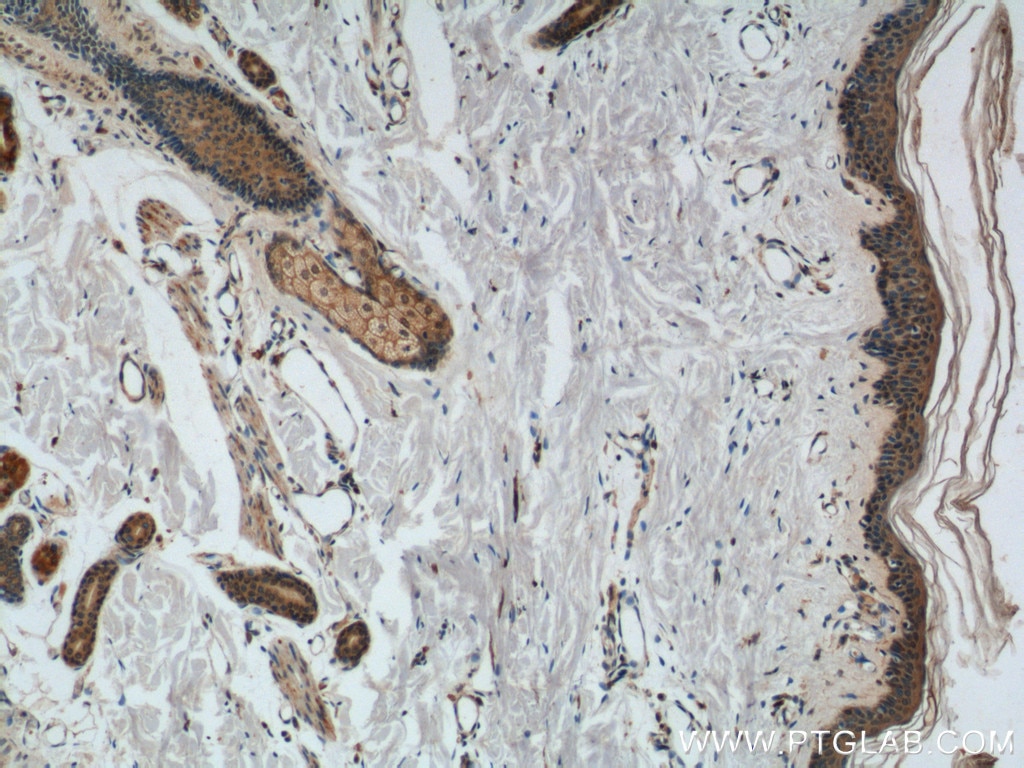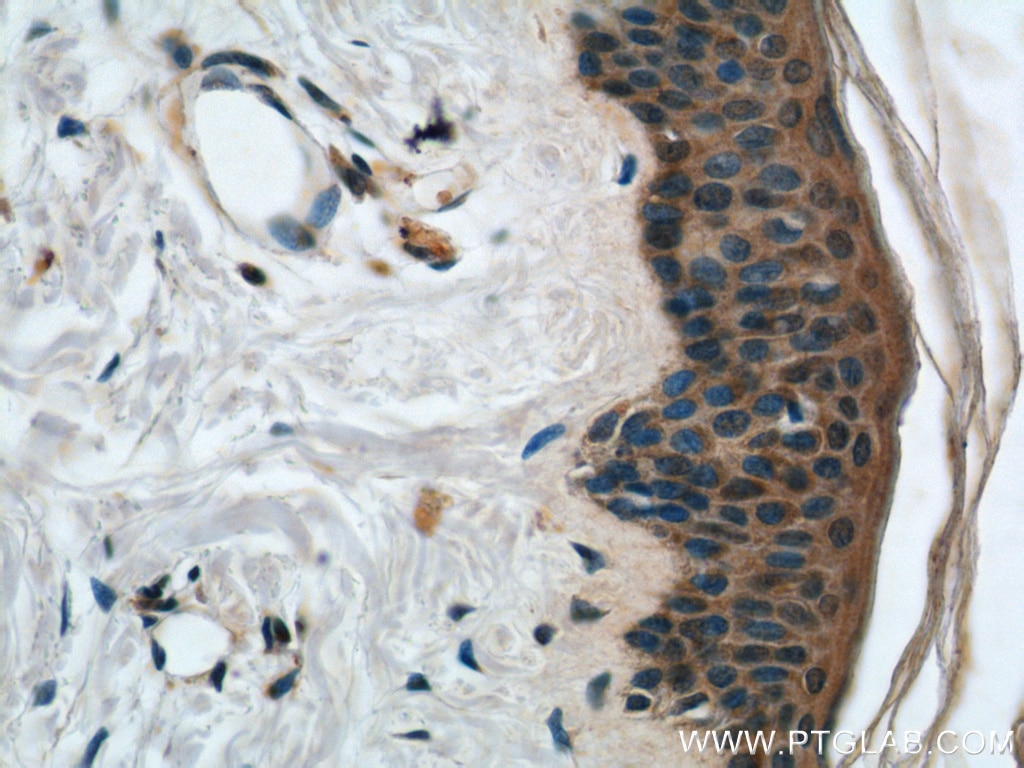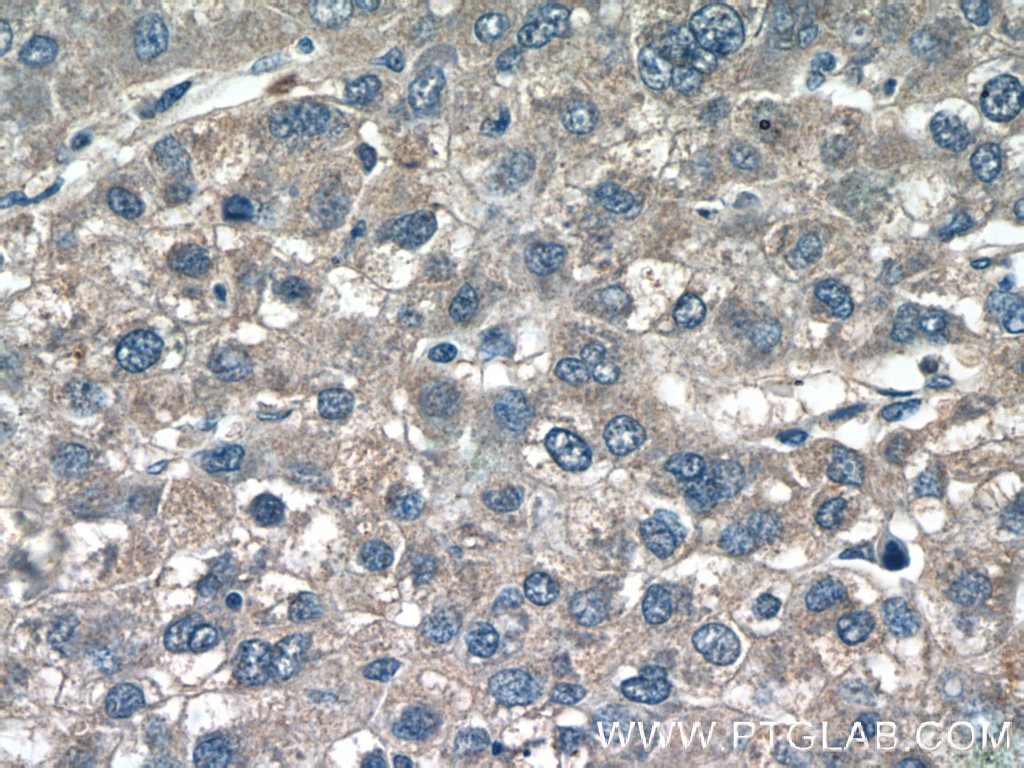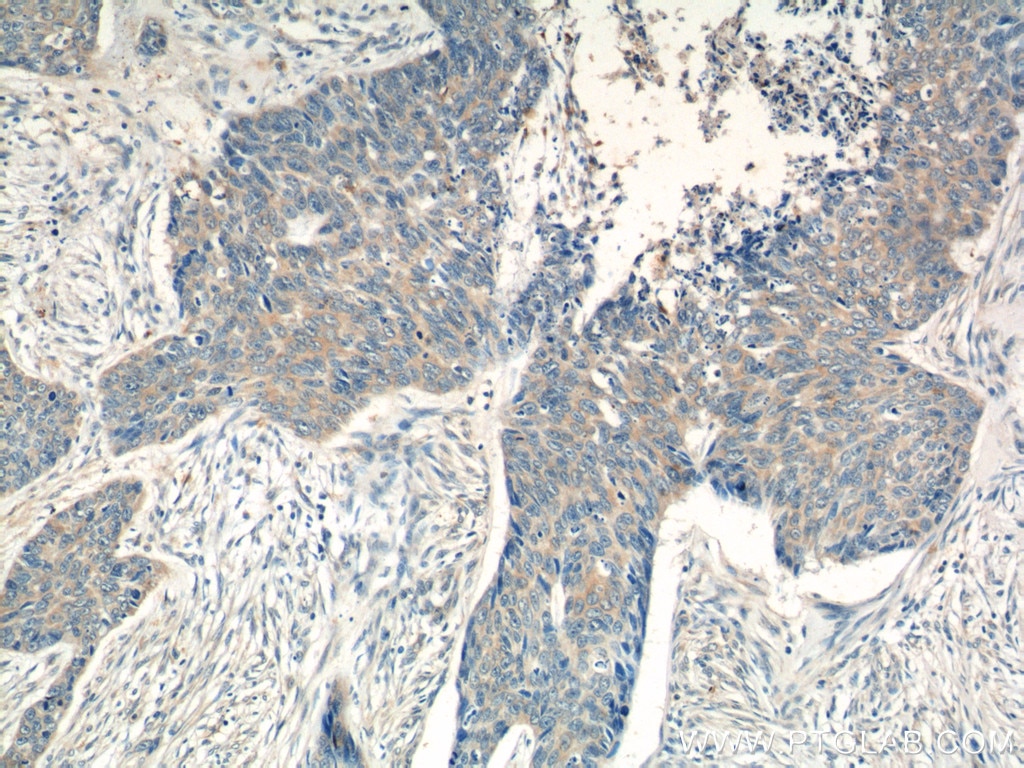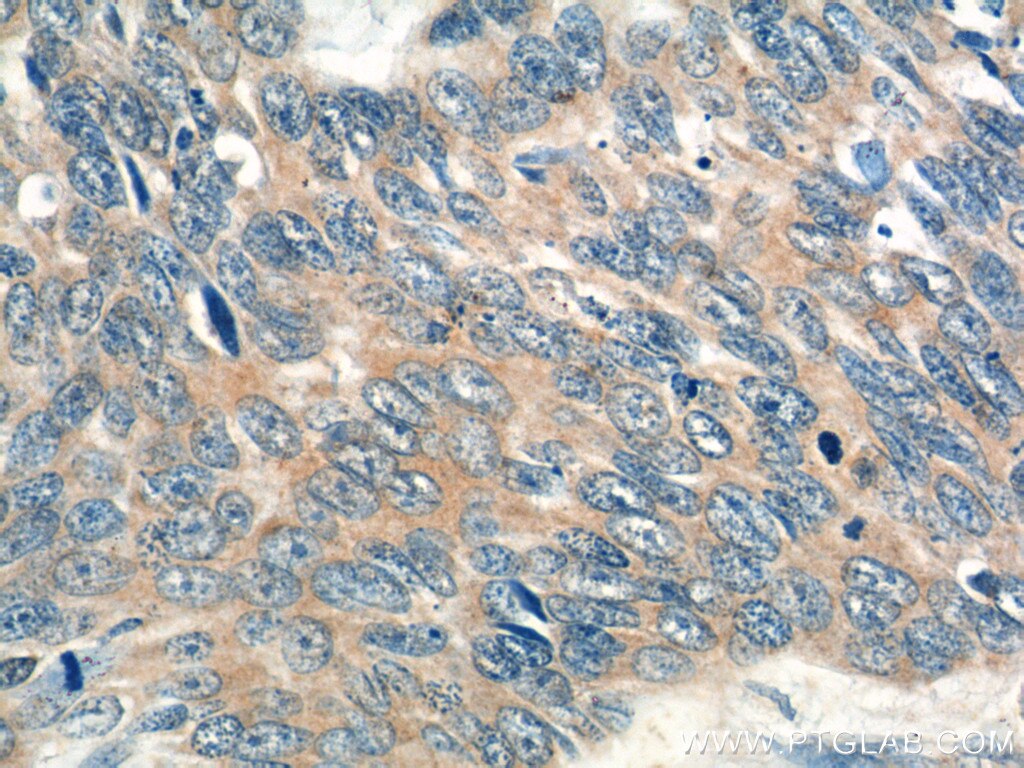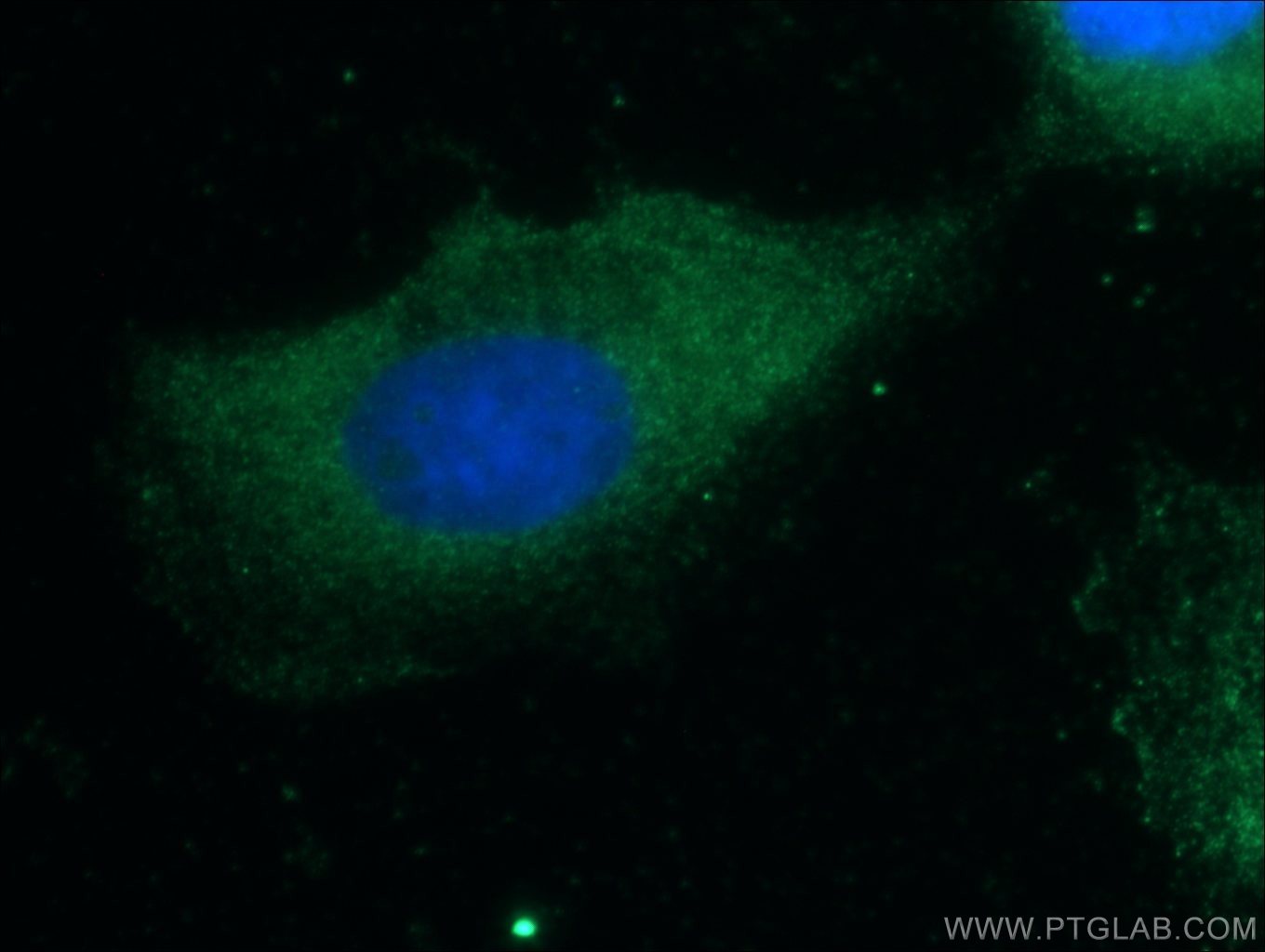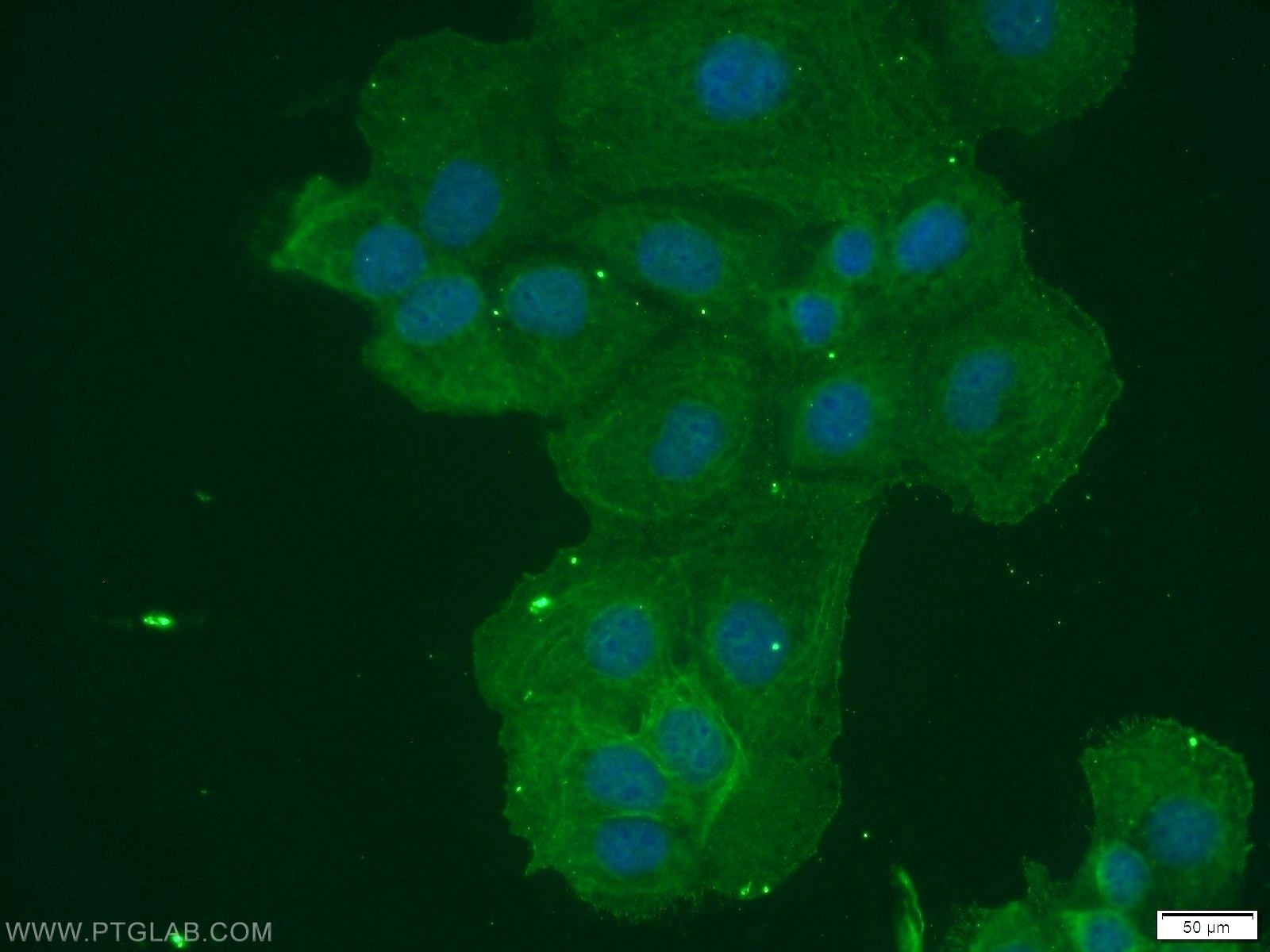Anticorps Polyclonal de lapin anti-CCL27
CCL27 Polyclonal Antibody for IHC, IF/ICC, ELISA
Hôte / Isotype
Lapin / IgG
Réactivité testée
Humain
Applications
IHC, IF/ICC, ELISA
Conjugaison
Non conjugué
N° de cat : 22301-1-AP
Synonymes
Galerie de données de validation
Applications testées
| Résultats positifs en IHC | tissu testiculaire humain, tissu cutané humain, tissu de cancer de la peau humain, tissu de cancer du foie humain, tissu hépatique humain il est suggéré de démasquer l'antigène avec un tampon de TE buffer pH 9.0; (*) À défaut, 'le démasquage de l'antigène peut être 'effectué avec un tampon citrate pH 6,0. |
| Résultats positifs en IF/ICC | cellules A431 |
Dilution recommandée
| Application | Dilution |
|---|---|
| Immunohistochimie (IHC) | IHC : 1:20-1:200 |
| Immunofluorescence (IF)/ICC | IF/ICC : 1:10-1:100 |
| It is recommended that this reagent should be titrated in each testing system to obtain optimal results. | |
| Sample-dependent, check data in validation data gallery | |
Informations sur le produit
22301-1-AP cible CCL27 dans les applications de IHC, IF/ICC, ELISA et montre une réactivité avec des échantillons Humain
| Réactivité | Humain |
| Hôte / Isotype | Lapin / IgG |
| Clonalité | Polyclonal |
| Type | Anticorps |
| Immunogène | Peptide |
| Nom complet | chemokine (C-C motif) ligand 27 |
| Masse moléculaire calculée | 13 kDa |
| Numéro d’acquisition GenBank | NM_006664 |
| Symbole du gène | CCL27 |
| Identification du gène (NCBI) | 10850 |
| Conjugaison | Non conjugué |
| Forme | Liquide |
| Méthode de purification | Purification par affinité contre l'antigène |
| Tampon de stockage | PBS with 0.02% sodium azide and 50% glycerol |
| Conditions de stockage | Stocker à -20°C. Stable pendant un an après l'expédition. L'aliquotage n'est pas nécessaire pour le stockage à -20oC Les 20ul contiennent 0,1% de BSA. |
Informations générales
CCL27, also known as CTACK, is a member of the CC chemokine subfamily. CCL27 is predominantly expressed in skin and selectively attracts cutaneous lymphocyte antigen-positive T cells and Langerhans cells. The CCL27 secreted from keratinocytes was reportedly involved in inflammatory skin diseases such as atopic dermatitis, contact dermatitis, and psoriasis. CCL27 is a ligand to CCR10. The binding of CCL27 to CCR10 on T cells promotes their migration to the skin, where they can then participate in local immune responses.
Protocole
| Product Specific Protocols | |
|---|---|
| IHC protocol for CCL27 antibody 22301-1-AP | Download protocol |
| IF protocol for CCL27 antibody 22301-1-AP | Download protocol |
| Standard Protocols | |
|---|---|
| Click here to view our Standard Protocols |
